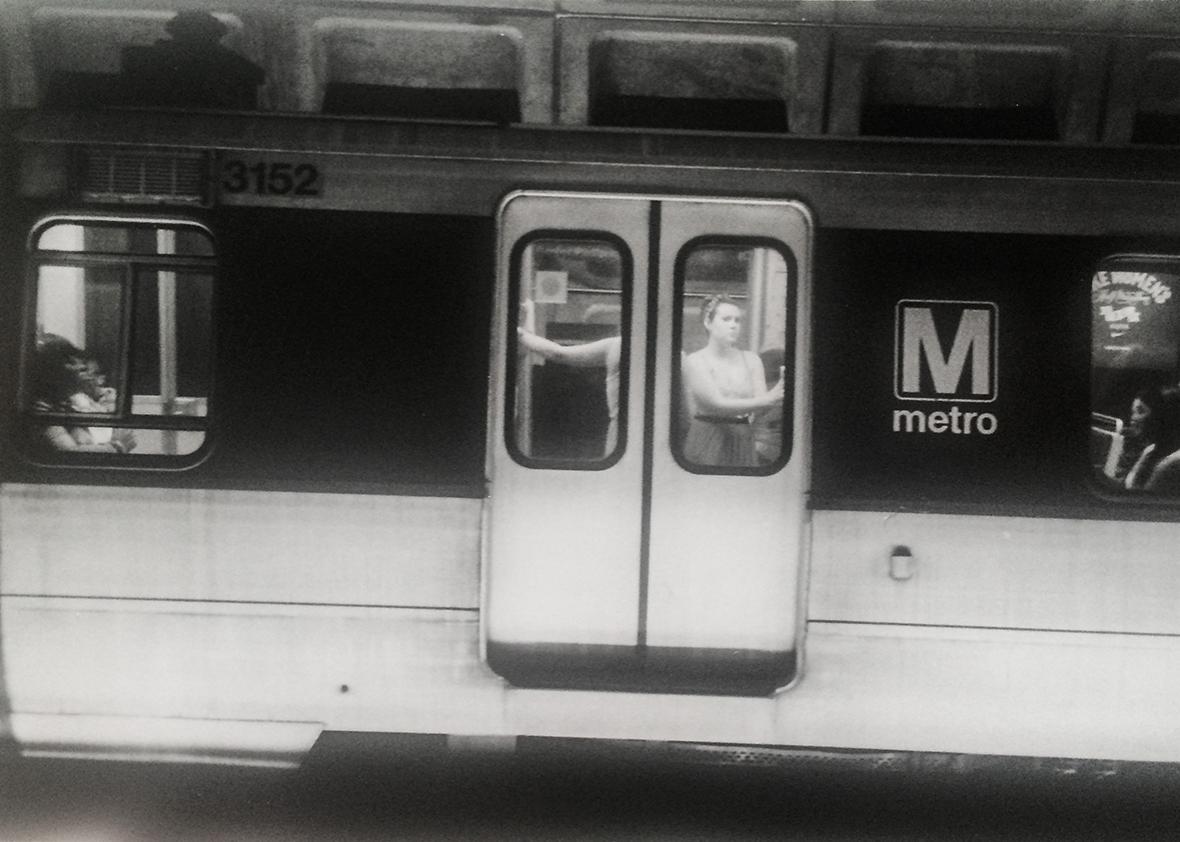What happened to Kevin Joseph Sutherland was horrific beyond imagining. On July 4, in front of about 10 witnesses on the Washington, D.C., Metro, an assailant punched him, stomped on him, kicked him in the head, and stabbed him at least 30 times. No one attempted to stop Sutherland’s killer.
What happened to me in November was vastly different, and I do not intend to equate the two events. Like Sutherland, I was attacked on a Saturday afternoon on the D.C. Metro. And as in Sutherland’s case, despite my screams and pleas, almost none of my fellow passengers on the crowded train car did anything to help.
I was in a window seat on the Blue Line, en route to meet friends for dinner. One teenage girl sat down next to a man in front of me; another sat beside me. They began by asking what kind of phone I had. The girl next to me patted down my pockets and, finding nothing, grabbed my coffee mug out of my hands. The girl in front put her finger in my face, getting as close as she could without touching me. They grabbed my legs. They threatened to rape me until I bled. One opened the other’s coat jacket, feigning—or not—that she had a weapon.
Trying to get the attention of other passengers, I shouted at the top of my lungs, “Leave me alone!” and “Stop touching me!” I tried to flee when the train stopped, but they boxed me in and shoved me back down into my seat. The man sitting in front of me, next to one of the girls who attacked me, never turned around. He rode the train for a few stops, while the assault was going on, and then departed. The only person to come to my defense was a petite twentysomething woman who told the girls to cut it out. The girls briefly yelled at her—which filled me with both gratitude and, on her behalf, regret—but then turned their attention back to me.
On my second attempt to escape, I took several punches but managed to shove past them. The girls chased me off the train, then back on it, then off again. The chase dragged on across two stops. I was finally able to hit the emergency button and alert the conductor. Later that day, bruised but not otherwise hurt, I identified the girls for the police.
It took a month before I rode the train by myself again. I still feel uncomfortable riding it alone at night. My dad, back in Kansas, sent me what seemed like every pepper sprayer available on Amazon. I bought myself a comically oversized pepper-spray fogger that my boyfriend calls the “criminal extinguisher.” I use earbuds more sparingly now. I rarely sit down on the train—that way I can’t be cornered.
After the incident, I felt angry at all the people on the crowded train car—there must have been 30 adults—who did nothing. When I screamed, no one tried to intervene. They didn’t hit the emergency call button. They didn’t even acknowledge that anything was happening. They just averted their eyes and let it continue.
I remembered this as I read accounts of Sutherland’s death. “[M]y instinct was to stay put and try to become as small as possible,” a 52-year-old female witness to the killing said. “I’m looking, but I don’t want to be noticed by [Sutherland’s assailant].” On Reddit, another eyewitness wrote, “What I don’t wish is that I had somehow tried to attack the assailant.”
I am still angry that no one really helped me. And since reading about Sutherland’s murder, during which his fellow passengers huddled at either end of the train car while he was stabbed and beaten to death, I can’t stop thinking about what I might have done in their shoes. How long did Sutherland’s agony go on for? Did he scream for help? What could the other passengers have done? What are the chances that Sutherland could have survived if someone had done something?
At work, reading the coverage at my desk, I think, “I could have stopped it with my pepper spray.” I would like to think that I’d have sprung into action. That I would have been willing to put myself in harm’s way. So does a writer for the Federalist, declaring that the 10 eyewitnesses displayed “not just cowardice but also a callous and unthinking selfishness.” The title of his piece: “Behold, the Beta Males Who Feel Good About Watching a Man Die.”
But in real life, I don’t want—no one wants—to get hurt. Despite my own experience and my lingering fury at the inaction of those around me, I’m not sure I would have acted any differently from those 10 eyewitnesses. If I’d been in that train car, I might have felt just like the woman who tried to become as small as possible. I might have been paralyzed with fear.
Yes, it’s hypocritical. I wish people would have helped me, and I’m not sure I could have mustered the courage to do the same.
I don’t want to be someone so passive and self-preserving that I allow a stranger to be killed right in front of me. I don’t want to protect myself at all costs. But fear is a powerful emotion. And just because we think we are brave doesn’t mean that we are.
